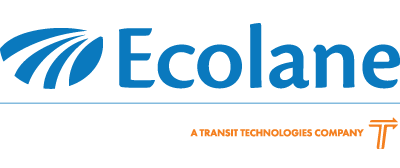Many transit organizations go through growing pains related to operational efficiency, operational capacity, and administrative hardships. For management teams, evaluating current transit operations can highlight what is causing inefficiencies. Once the areas of improvement have been identified, the next step will be to create a plan of action to make the improvements. We have identified the 3 main pain points that we have noticed with transit agencies looking to make a change and our experts have outlined how to find them and what to do to set the action plan in motion.
Manual Entry
One of the biggest complaints in the transit industry comes from dispatchers that are stuck with an exorbitant amount of time-consuming manual entry. Identifying this issue should be fairly simple as you will be able to look at your scheduling and dispatch operations to see how much manual entry your dispatchers are doing on a daily basis. Manual entry affects operational efficiency and can make it difficult for administrators to do quality work.
Implementing modern transportation scheduling software can eliminate manual entry from your operations completely. With this new technology, agencies can create automated workflows that will enable dispatchers to spend less time on data entry and, in turn, the efficiency of all transit operations will be boosted and more internal resources will be available for important tasks.
Archaic Processes
For those agencies that have implemented transportation scheduling software, the biggest issue comes from archaic processes that make leveraging the technology even more difficult. Issues such as poor on-time performance and unreliable driver tracking can create major problems with operations.
These process issues can be solved by auditing current software to see whether or not you are getting the absolute most out of it in regards to operational efficiency. Many agencies will find that there are add-ons or other software products that fit their needs and will eliminate the archaic process issues that are hindering their ability to be efficient with operations.
Administrative Burdens
When any agency is looking to improve operations, it is important to be collecting the right data and creating the right reports that will help you understand and decode the information within the data. Administrators are burdened with the task of trying to get meaningful data out of archaic software but because of manual entry mistakes are made and data can be misleading.
Having the right software with the right software provider is key to collecting the right data. Having the right data will give executive teams the right information to make more strategic decisions when it comes to operational changes. Many agencies that we have worked with have seen improvements such as collecting more meaningful data and creating more dynamic reports that eventually lead to increasing their number of rides per hour, decreased fuel costs, and a reduced amount of no-shows.
With so many challenges facing transit agencies today, it is important to take a look at your operations regularly to pinpoint areas of improvement and what can be done to make those improvements. Accurate and effective reporting is one of the most challenging activities for transit agencies. To learn how you can make better reports, reduce costs, and boost efficiency by switching to a web-based platform, download the "Using Web Intelligence to Enhance Coordination" eBook.
About the Author

Ecolane
Read Ecolane's blog articles for perspective, opinion and information on transit and paratransit issues.


